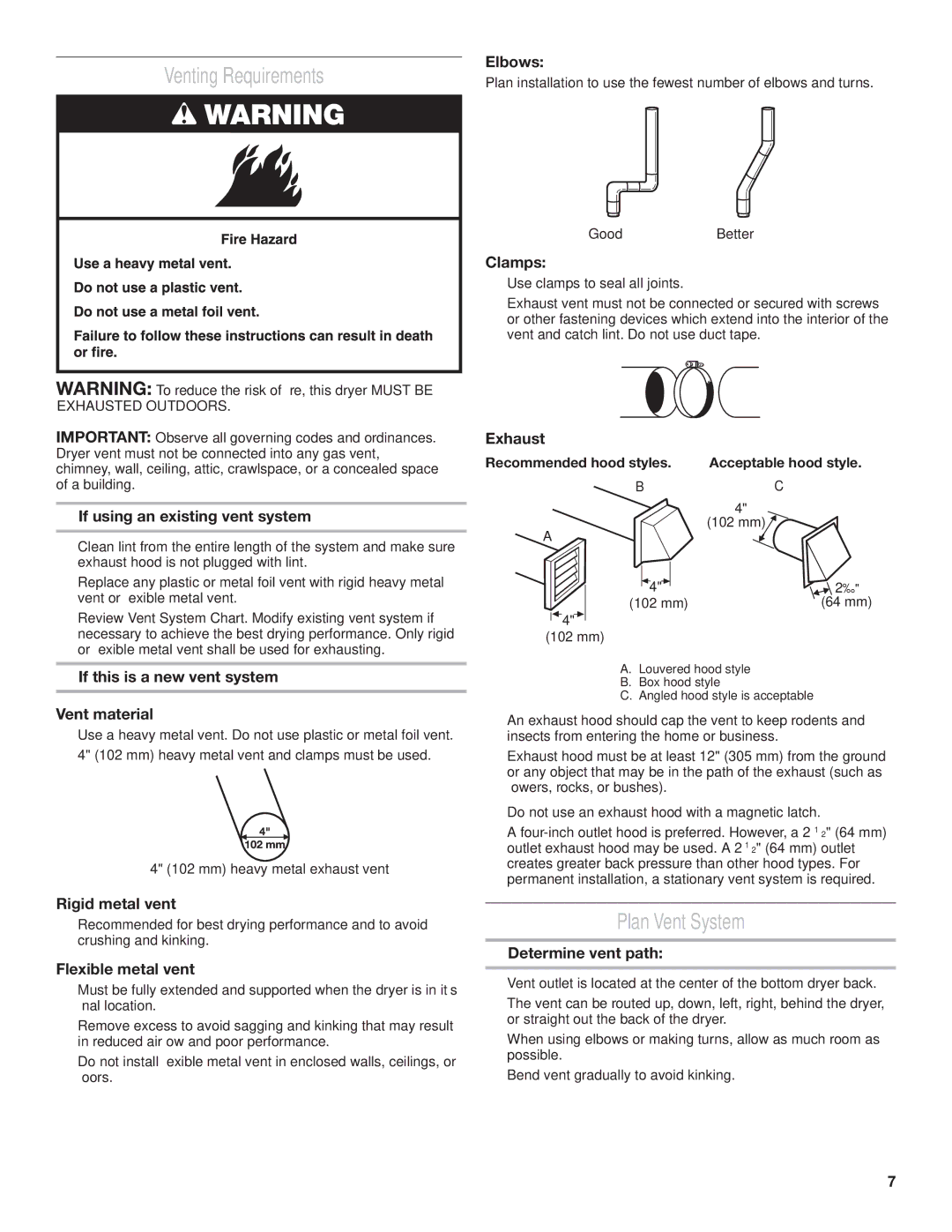
Venting Requirements
WARNING: To reduce the risk of fire, this dryer MUST BE EXHAUSTED OUTDOORS.
IMPORTANT: Observe all governing codes and ordinances. Dryer vent must not be connected into any gas vent, chimney, wall, ceiling, attic, crawlspace, or a concealed space of a building.
If using an existing vent system
■■ Clean lint from the entire length of the system and make sure exhaust hood is not plugged with lint.
■■ Replace any plastic or metal foil vent with rigid heavy metal vent or flexible metal vent.
■■ Review Vent System Chart. Modify existing vent system if necessary to achieve the best drying performance. Only rigid or flexible metal vent shall be used for exhausting.
If this is a new vent system
Vent material
■■ Use a heavy metal vent. Do not use plastic or metal foil vent. ■■ 4" (102 mm) heavy metal vent and clamps must be used.
4" (102 mm) heavy metal exhaust vent
Rigid metal vent
■■ Recommended for best drying performance and to avoid crushing and kinking.
Flexible metal vent
■■ Must be fully extended and supported when the dryer is in it’s final location.
■■ Remove excess to avoid sagging and kinking that may result in reduced airflow and poor performance.
■■ Do not install flexible metal vent in enclosed walls, ceilings, or floors.
Elbows:
Plan installation to use the fewest number of elbows and turns.
GoodBetter
Clamps:
■■ Use clamps to seal all joints.
■■ Exhaust vent must not be connected or secured with screws or other fastening devices which extend into the interior of the vent and catch lint. Do not use duct tape.
Exhaust
Recommended hood styles. | Acceptable hood style. |
B | C |
| 4" |
A | (102 mm) |
| |
4" | 2½" |
(102 mm) | (64 mm) |
4" |
|
(102 mm) |
|
A.Louvered hood style
B.Box hood style
C.Angled hood style is acceptable
■■ An exhaust hood should cap the vent to keep rodents and insects from entering the home or business.
■■ Exhaust hood must be at least 12" (305 mm) from the ground or any object that may be in the path of the exhaust (such as flowers, rocks, or bushes).
■■ Do not use an exhaust hood with a magnetic latch.
■■ A
Plan Vent System
Determine vent path:
■■ Vent outlet is located at the center of the bottom dryer back.
■■ The vent can be routed up, down, left, right, behind the dryer, or straight out the back of the dryer.
■■ When using elbows or making turns, allow as much room as possible.
■■ Bend vent gradually to avoid kinking.
7
